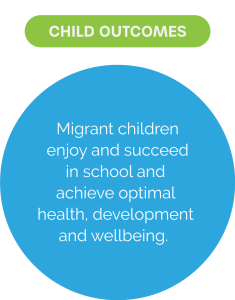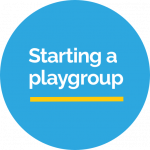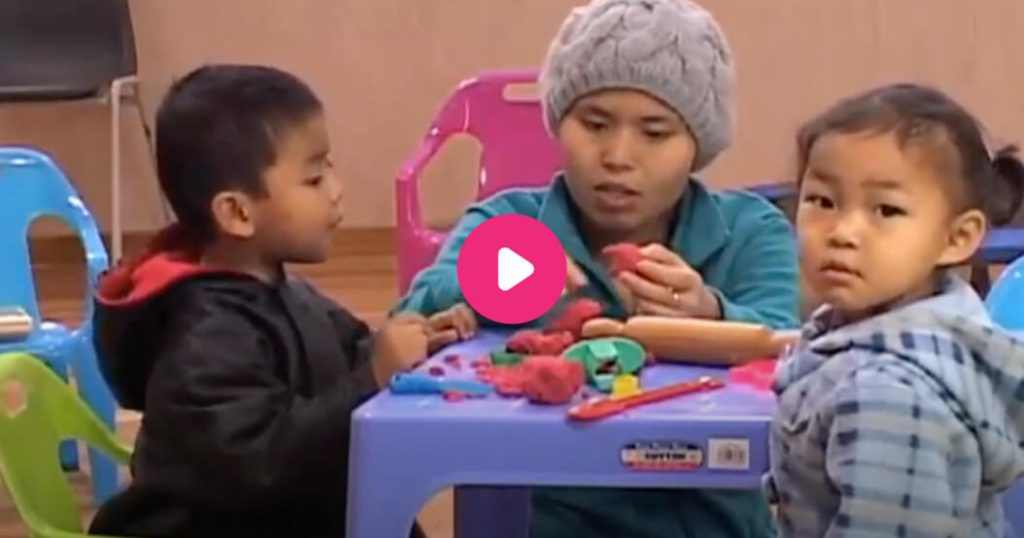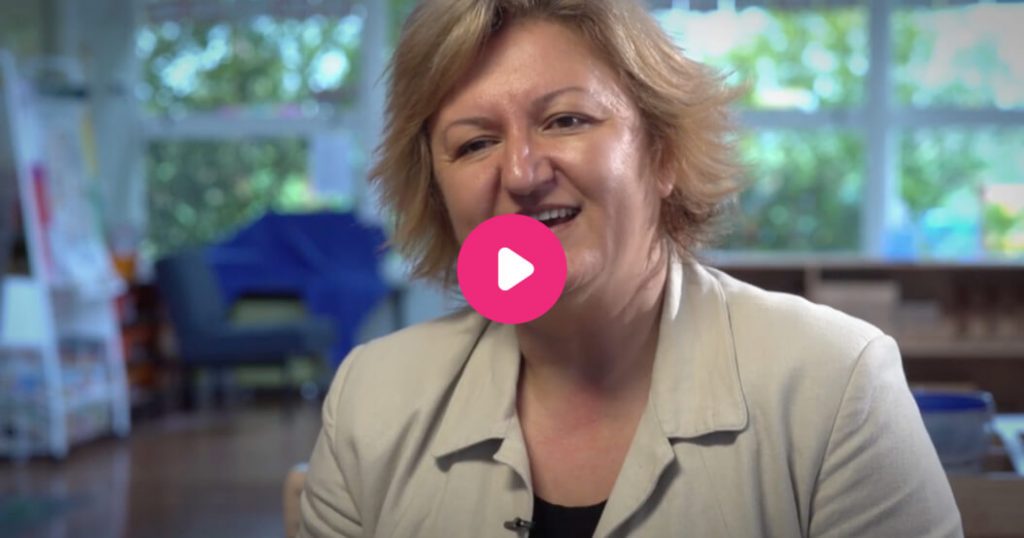The community hub program’s playgroups operate as part of the fundamental principle of schools as the ‘hub for the community’
A key component to playgroup is that a parent stays with their child throughout the session. Parent participation is crucial to the child making the most of the playgroup activities, and allows the parent time to play with their child. For parents, being able to meet other adults in a supportive environment provides opportunities to make connections with others and reduce social isolation.
Playgroup in the primary school location offers the following benefits:
- Parents and children can establish links and develop trust and confidence in the school community.
- They provide links to extended community networks, including health and support services.
- They positively impact the social wellbeing of the family, the child, the school and the entire community.

Setting up a playgroup and why it’s important

Research indicates that the most rapid period of brain development and learning occurs in the first five years of life.
Children who regularly come to playgroup learn to make new friends. It is often the first time they are interacting with children outside their immediate family.
They have new experiences that playgroup provides and that offer the following benefits:
- Developing physical and language skills.
- Developing social and co-operation skills such as sharing; turn-taking; learning to wait, to listen and to follow instructions; to listen in a group; and book reading. These skills also develop self-confidence and social maturity.
- Children who regularly come to playgroup transition more easily into kindergarten and later into school.
- Playgroups based in the local school also help prepare children for school.

To start a playgroup, you will need at least three families with children aged from birth to preschool, and a space in the school that you can consistently use to run playgroup.
Having the school leadership and staff on board will make setting up a playgroup much easier.
Contact your local playgroup association for advice on setting up a playgroup within your hub. The Playgroup Australia website is useful for guidance, ideas and local contacts (available by state).
Most playgroups operate over a two-hour period and include:
- Free play
- Snack time
- Book/story time
- Song/rhyme time
- Parent/child activities where both parent and child do this together e.g. crafting
What works – great advice from other leaders
You don’t have to do everything listed here. Try a few ideas and see what works for your hub. Establish your playgroup and then build on and enhance it over time.
- If you know other hubs that are already operating playgroups, talk to them about how they set it up.
- Attend a local hub playgroup to see how their playgroup works.
- Think about holding a playgroup directly after school drop-off to catch mothers who are already out the door.
- Invite prep/junior/reception parents to walk down to your hub and have a look at the playgroup.
- Find a partner organisation that will run the playgroup sessions for you and arrange for volunteers to help run the associated activities. This gives you more time during the sessions to focus on getting to know each parent.
- Place brochures and information sheets about support services in the playgroup rooms, so that parents can discreetly take them home.
- Hold ‘open playgroups’ that welcome people from any cultural background. This helps break down cultural barriers and encourages people to learn about one another’s cultures and family values.
- Make families feel welcome when they arrive by greeting both the parent and their child.
- Remind participants that grandparents, members of their extended family, and friends are always welcome.
- Promote incentives to get more people through the door e.g. offering healthy snacks for children, or book giveaways.
- Promote and role model child-focused behaviour, such as getting down on the child’s level.
- Create opportunities for parents and children to learn and play together. When a parent participates, the activity becomes more meaningful for the child.
- Ask parents for ideas about what they and their children would like to experience in a playgroup session and invite them to help. For example, parents can make the play dough, suggest and lead craft activities, or teach the group a favourite children’s song from their culture.
- Follow up a session with a morning or afternoon tea and invite parents to bring a plate of food to share. Food is a universal language and helps break down cultural biases.
- Bring in bilingual storytellers, artists and culturally appropriate music and dance performances.
- Invite guest speakers to talk to the entire group about services that may be of interest to your families.
- Provide learning opportunities that extend beyond the playgroup setting.
- Organise excursions to child-oriented attractions e.g. a park, a playground, a museum, a children’s farm or a zoo. Even better, run an excursion involving playgroups from a number of hubs, to expand the parents’ social networks even further.
- Use sessions leading up to special events to explore themes relating to the upcoming activity e.g. a farm animal theme before visiting the children’s farm.
Leadership in playgroups
Working in Partnership with Parents – hear various perspectives on starting and importance of playgroup.
My story: Fahriye
Fahriye Yilmaz, coordinator of Coolaroo South Primary Hub in Victoria, talks about how her community hub got off the ground.

